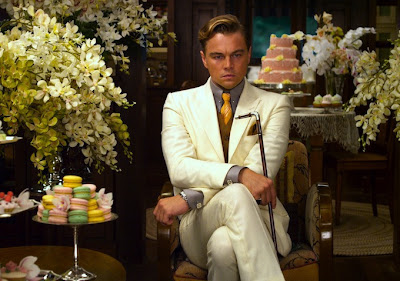I was taken aback by the intensity of my grief. I don’t have cable, so I watched The
Sopranos in fits and starts, and only started following it on Netflix when it
was already over.
I devoured season after season in sessions of two or three episodes a night.
I needed to spend time with these people. And like many others, I fell in love -- disturbingly, inevitably -- with Tony
Soprano. Perhaps it was the shock
of learning James Gandolfini was only a year older than me. But perhaps it was
that the character of Tony is one of the greatest artistic achievements in the
history of modern drama; one whose most intimate moments we were privy to. His relationship with his wife Carmela (the equally
towering Edie Falco), his
sessions with Dr. Malfi, his adventures in other bedrooms, his family life as a
child, his horrifying violence. Have we ever gotten to know a fictional character so well? I once saw Gandolfini on the street in
New York. I realized he was there because I saw a bunch of people all
transfixed in one direction, like at the scene of an accident. I thought,
“There’s Tony”. There’s Tony: the
guy from Jersey I know better than my neighbors, better than some of my
closest friends. He walks among us.
But Tony Soprano started as words on a page. For an actor,
the gift of such magnificent writing must be nothing short of a
miracle, yet it also poses a heroic challenge, because he has to deliver the
goods. And Gandolfini did that in spades, with enormous artistic integrity,
bravery and generosity, baring layer after layer of a man’s humanity in all its
twisted glory. We fell in love with him because he was full of life,
and full of love. He was not ashamed of himself, but he wanted to change. When he did
terrible things, ruthlessly, he did not endear himself to us by
wallowing in guilt. He dealt with his demons head on, by going to a female
shrink, which in his world is tantamount to genetic-grade treason. He was a true hero because he was proud, but not
altogether satisfied with who he was. He was a product of his culture, but
slightly off-center, trying to be both a respectable American, and a
respected goombah; trying to make good on all
the trappings of the pursuit of happiness mandated by his country, in the way
his particular hand was dealt. Even in his most brutal moments, he walked that tightrope with impressive grace.
As an actor, it must have been difficult to sever himself
from the character he created. A giant among men in our living rooms, on the
big screen he never got top billing. He was, ultimately, a character actor. American movies today have no use for the
likes of him as a leading man. Still, the way he portrayed Tony Soprano, man full of love,
showed that he could certainly be one. Instead, he got offered many modest roles, which he
took and played with the same fierce commitment he brought to his greatest
creation. It was always a thrill, and a bit of a fear in the pit of one’s gut,
to see if he would be able to be someone other than Tony. He was, and he always
nailed it, like all great character actors do. I remember him in a small movie where he played an alcoholic
hit man. I have never seen emotional exhaustion portrayed so devastatingly onscreen. I
am sure Gandolfini brought to bear the enormous weight of being Tony Soprano, year
after year, forever and ever; yet the character was nothing like Tony. It was as if he was saying, I am tired
of playing these kinds of guys, but “no disrespect”: I’m still gonna give it all
I got.
As Tony Soprano, Gandolfini contained multitudes. Like we all do in life, he played many roles. He was a
son, a brother, a husband, a lover, a father, a friend, a boss, a patient, an enemy, a citizen. Like us, he was ever different
depending on the context, and yet quintessentially the same. In the end, tragically, James Gandolfini gave Tony
Soprano the finality that David Chase cruelly refused us
in that shockingly truncated final scene. We are grieving double: for the
untimely loss of an immensely talented artist, and much more deeply for our
impressive, fearsome friend, Tony Soprano. May they both rest in peace.







